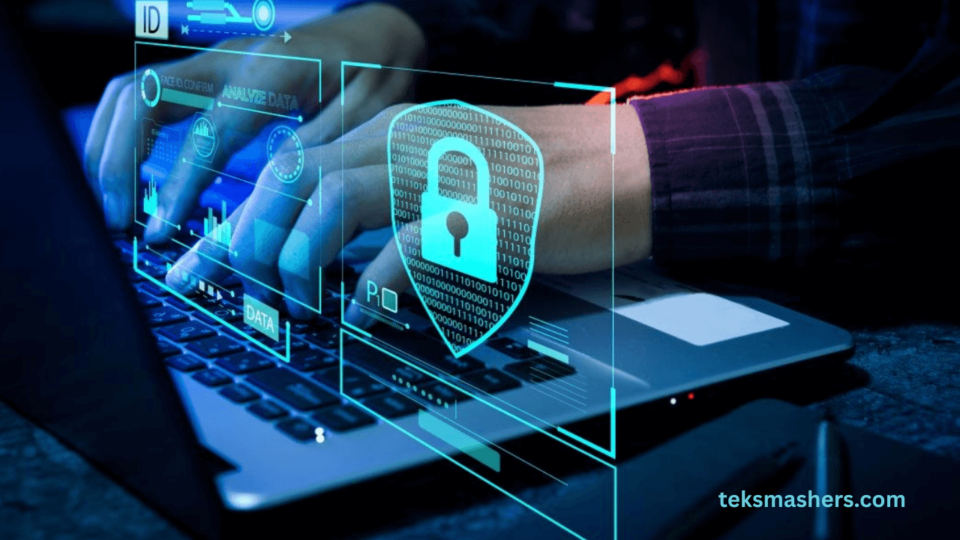In today’s digital age, cybersecurity is no longer just a concern for large corporations. Small businesses are increasingly becoming targets for cybercriminals due to their often-limited security measures. Protecting your business from cyber threats is essential to safeguard sensitive data, maintain customer trust, and ensure business continuity. Here are 8 cybersecurity tips and best practices tailored for small business owners:
1. Educate Your Employees on Cybersecurity Awareness
Why it matters: Human error is one of the leading causes of data breaches. Employees who are unaware of cybersecurity risks can inadvertently expose your business to threats.
Best practices:
Conduct regular cybersecurity training sessions to educate employees about phishing scams, social engineering, and safe online practices.
Teach them to recognize suspicious emails and avoid clicking on unknown links or downloading attachments from untrusted sources.
Encourage the use of strong, unique passwords and the importance of not sharing login credentials.
2. Implement Strong Password Policies
Why it matters: Weak passwords are easy targets for hackers. A strong password policy is your first line of defense.
Best practices:
Require employees to create complex passwords with a mix of letters, numbers, and special characters.
Enforce multi-factor authentication (MFA) for an added layer of security.
Use a password manager to securely store and manage passwords.
3. Keep Software and Systems Updated
Why it matters: Outdated software and systems often contain vulnerabilities that hackers can exploit.
Best practices:
Regularly update all software, including operating systems, antivirus programs, and applications.
Enable automatic updates to ensure you don’t miss critical patches.
Replace outdated hardware or software that is no longer supported by the vendor.
4. Secure Your Wi-Fi Networks
Why it matters: Unsecured Wi-Fi networks can be an easy entry point for cybercriminals.
Best practices:
Use a strong encryption protocol like WPA3 for your Wi-Fi network.
Change the default username and password for your router.
Create a separate guest network for visitors to prevent unauthorized access to your main business network.
5. Backup Your Data Regularly
Why it matters: Data loss can occur due to cyberattacks, hardware failure, or natural disasters. Regular backups ensure business continuity.
Best practices:
Implement a 3-2-1 backup strategy: Keep 3 copies of your data, on 2 different types of storage, with 1 copy stored offsite or in the cloud.
Test your backups regularly to ensure they can be restored in case of an emergency.
Use encrypted backups to protect sensitive information.
6. Use Firewalls and Antivirus Software
Why it matters: Firewalls and antivirus software act as a barrier between your network and potential threats.
Best practices:
Install and maintain a firewall to monitor and control incoming and outgoing network traffic.
Use reputable antivirus software to detect and remove malware.
Ensure all devices, including mobile devices, are protected.
7. Limit Access to Sensitive Data
Why it matters: Not all employees need access to sensitive information. Limiting access reduces the risk of insider threats.
Best practices:
Implement a role-based access control (RBAC) system to grant access only to those who need it.
Regularly review and update access permissions.
Use encryption to protect sensitive data both in transit and at rest.
8. Develop a Cybersecurity Incident Response Plan
Why it matters: Even with the best precautions, breaches can happen. A response plan ensures you’re prepared to act quickly.
Best practices:
Create a detailed incident response plan outlining steps to take in the event of a cyberattack.
Assign roles and responsibilities to team members.
Conduct regular cybersecurity drills to test your plan and improve preparedness.
Conclusion
Cybersecurity is not a one-time effort but an ongoing process. By implementing these cybersecurity tips and best practices, small business owners can significantly reduce their risk of falling victim to cyberattacks. Remember, investing in cybersecurity is an investment in the future of your business.

